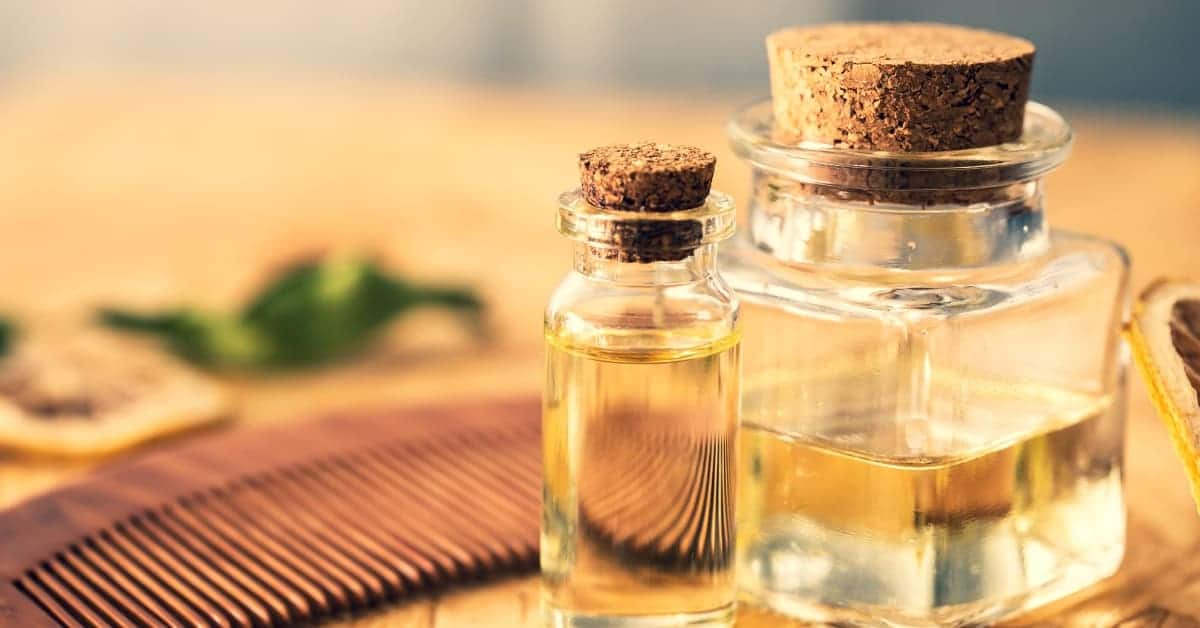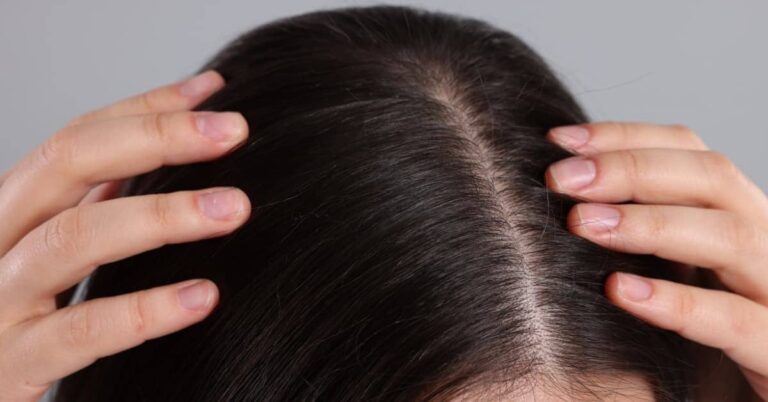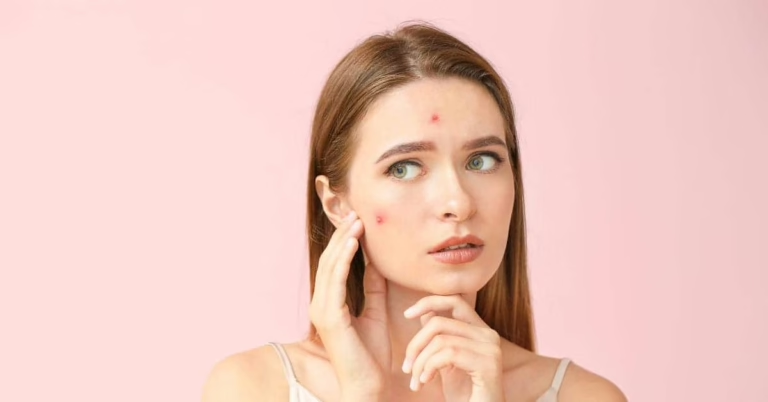The Power of Natural Oils: Your Solution for Stronger Hair and Healthier Scalp
When it comes to hair care, urban and semi-urban lifestyles often subject your hair to stress, pollution, and everyday wear and tear. You might be dealing with dryness, split ends, or thinning hair, all while juggling busy schedules and styling routines. If you’ve been seeking solutions that truly work and fit into your hectic lifestyle, natural oils are the answer. These nutrient-rich oils, extracted from nuts, seeds, and fruits, provide your hair with the care it deserves, offering everything from moisture to repair.
What is Natural Oil?
Natural oils are plant-based oils extracted from various parts of plants, such as seeds, nuts, fruits, and kernels. These oils are rich in essential nutrients, vitamins, and fatty acids, which offer numerous benefits for hair, skin, and overall well-being. Unlike synthetic oils, natural oils are free from harmful chemicals and preservatives, making them a safer, eco-friendly option for those seeking more natural and holistic approaches to their beauty routine.
How is Natural Oil Extracted?
Natural oils are extracted using different methods depending on the type of oil and its source. The most common extraction methods include:
1. Cold Pressing: This method involves pressing the raw material (seeds, nuts, or fruits) at low temperatures to retain the oil’s natural nutrients, antioxidants, and properties. Cold-pressed oils, such as coconut or olive oil, are considered the purest and most nutrient-rich.
2. Steam Distillation: Commonly used for essential oils, this process uses steam to release the oil from plant materials. The steam carries the oil, which is then condensed and separated from the water, yielding a potent, aromatic essential oil.
3. Solvent Extraction: For some plants with lower oil content, solvents are used to extract the oil. Once extracted, the solvent is removed, leaving behind the pure oil. This method is often used for oils like jojoba or grapeseed.
Why Should You Consider Using Natural Oils?
1. Nourishment and Repair: Natural oils are packed with essential nutrients, including vitamins, fatty acids, and antioxidants, that nourish hair and skin at a deeper level. They can repair damage, hydrate, and restore vitality, especially for those dealing with dryness, frizz, or dullness.
2. Safe for All Skin and Hair Types: Since natural oils are free from synthetic chemicals, they are generally safe for sensitive skin and hair. Whether you have curly, straight, oily, or dry hair, there’s a natural oil that can provide tailored care.
3. Sustainability: Many natural oils are sourced from renewable resources and produced through eco-friendly methods, making them a great choice for those who want to minimize their environmental footprint.
4. Versatility: Natural oils can be used in a variety of ways, from hair treatments to skin moisturizers, and even in DIY beauty recipes. They offer a simple and effective way to enhance your beauty routine with minimal effort.
Switching to natural oils helps you embrace a more holistic and healthy approach to beauty, ensuring that your hair and skin receive the nourishment they need without exposure to harsh chemicals.
Discover how natural oils can give you smooth, healthy hair and how you can easily incorporate them into your routine.
Coconut Oil: The Ultimate Hair Repair Hero
Struggling with hair that feels lifeless or damaged? Coconut oil is your secret weapon. With its ability to deeply penetrate the hair shaft, this versatile oil repairs damage from within while keeping hair hydrated. Whether you’re styling regularly or exposing your hair to pollution and harsh weather, coconut oil can reverse the damage.
- Properties: Coconut oil is loaded with lauric acid, a type of fat that allows it to penetrate deep into the hair shaft, repairing damage and reducing protein loss. Perfect for anyone dealing with dryness or breakage.
- Aroma: A light, tropical scent that’s both refreshing and calming.
- How to Use: Apply as a pre-shampoo treatment, or leave a few drops in your hair post-wash to reduce frizz. Coconut oil also works wonders when massaged into the scalp to moisturize and reduce dandruff.
- Who Can Use It: Suitable for all hair types, especially damaged or frizzy hair. Men and women can benefit equally from its restorative properties.
- Pain Point Addressed: If you’ve been battling brittle, damaged hair due to over-styling or environmental stressors, coconut oil offers an easy, effective solution that fits into your existing hair care routine.
Olive Oil: The Moisture Lock-in for Healthy Hair
Dealing with dry, brittle hair after a long day in the city or under harsh winter winds? Olive oil might be the key to regaining that lost moisture and bounce. This oil’s deep penetration into the hair shaft ensures lasting hydration, especially during colder months. - Properties: Rich in monounsaturated fats and antioxidants, olive oil strengthens and softens hair, while adding much-needed moisture. It’s especially great for those looking to maintain smooth curls or combat winter dryness.
- Aroma: Earthy, subtle, and soothing.
- How to Use: Warm a few tablespoons and use as a weekly deep-conditioning mask, or apply sparingly to tame frizz and enhance shine.
- Who Can Use It: Best suited for those with thick or dry hair that needs extra moisture.
- Pain Point Addressed: Whether you’re experiencing dry, coarse hair due to environmental factors or indoor heating, olive oil keeps your hair conditioned and manageable all day long.
Moroccan Argan Oil: A Lifesaver for Color-Treated Hair
Do you love dyeing your hair but hate how it dries out and loses its luster afterward? Argan oil is specifically designed to help dyed and damaged hair bounce back. Its powerful blend of fatty acids repairs and protects hair from the harsh effects of chemical treatments.
Properties: Packed with essential fatty acids and vitamin E, argan oil shields hair from the oxidative damage caused by hair dye, making it an ideal treatment for color-treated or heat-damaged hair.
Aroma: A light, nutty scent that’s both luxurious and subtle.
How to Use: Rub a small amount onto the ends of your hair to protect against heat damage or use as a leave-in treatment for smoother, shinier hair.
Who Can Use It: Perfect for anyone with color-treated or heat-styled hair, or anyone experiencing brittle or dry strands.
Pain Point Addressed: If you’re struggling with dry, brittle hair after coloring or using heat styling tools, argan oil restores moisture, repairs damage, and protects against further breakage.
Jojoba Oil: The Perfect Match for Thinning Hair
Thinning hair can be a source of frustration and insecurity, but jojoba oil offers a natural solution. With its unique composition similar to the skin’s natural oils, jojoba helps balance scalp oils while encouraging hair growth and reducing breakage.
- Properties: Jojoba oil closely mimics the sebum produced by your skin, making it ideal for balancing moisture on the scalp and reducing the breakage associated with thinning hair. Its liquid wax content helps moisturize without leaving a greasy residue.
- Aroma: Mild, nutty scent that’s barely noticeable after application.
- How to Use: Add a few drops to your shampoo or massage directly into the scalp for improved hydration and reduced hair thinning.
- Who Can Use It: Ideal for men and women experiencing thinning hair or scalp dryness.
- Pain Point Addressed: If you’re experiencing thinning hair or breakage due to stress, age, or environmental factors, jojoba oil can help strengthen your strands and boost hair growth naturally.
Avocado Oil: A Nutrient-Rich Boost for Shine
Does your hair look dull or lackluster? Avocado oil, packed with vitamins and essential fatty acids, adds shine while strengthening your hair from the inside out. If you’ve been dealing with breakage or frizziness, this oil can seal the cuticle and prevent further damage.
Properties: Rich in vitamins A, D, E, and K, as well as antioxidants, avocado oil helps fortify hair strands and lock in moisture. It smooths the hair’s outer cuticle, leaving it shinier and healthier.
- Aroma: Light, earthy scent that fades quickly after application.
- How to Use: Apply as a leave-in conditioner for a sleek, polished look or mix into your favorite hair mask for an added dose of moisture.
- Who Can Use It: Best for anyone with dull, frizzy, or damaged hair that needs an extra dose of shine and strength.
- Pain Point Addressed: If you’re struggling with dullness or constant frizz, avocado oil restores your hair’s natural shine while preventing future breakage.
Sweet Almond Oil: A Light Solution for Dandruff and UV Protection
Dry scalp and dandruff problems getting you down? Sweet almond oil provides lightweight hydration that won’t weigh your hair down, while also protecting against UV damage—a perfect solution for those who spend time outdoors.
Properties: Sweet almond oil is rich in vitamin E and fatty acids, offering lightweight hydration while protecting hair from sun damage. It’s also a great choice for soothing itchy scalps and reducing dandruff.
Aroma: Delicate, sweet scent that feels refreshing and light.
How to Use: Apply a few drops to your scalp to reduce dryness and dandruff, or use as a protective serum before spending time in the sun.
Who Can Use It: Ideal for men and women with fine hair who want UV protection and dandruff control without the heavy, greasy feel of thicker oils.
Pain Point Addressed: Whether you’re dealing with dandruff or dry, flaky scalp, sweet almond oil offers a lightweight, non-greasy solution while shielding your hair from harmful UV rays.
Grapeseed Oil: Tame Frizz and Treat Split Ends
If you’ve been fighting frizz or split ends, grapeseed oil is a fantastic option. This lightweight oil nourishes without weighing hair down, offering an easy fix for the damage caused by heat styling or extreme weather conditions.
Properties: High in antioxidants, grapeseed oil helps treat split ends and manage frizz while enhancing your hair’s natural shine. It’s light enough for fine hair and doesn’t leave a greasy residue.
Aroma: Subtle, fresh, and clean.
How to Use: Apply a few drops to damp hair before blow-drying, or use it as a finishing serum to keep frizz at bay throughout the day.
Who Can Use It: Suitable for all hair types, especially those with fine hair prone to split ends or frizz.
Pain Point Addressed: If you’re dealing with frizzy hair or split ends due to constant styling, grapeseed oil can help restore your hair’s smoothness and protect it from further damage.
Rosemary Oil: The Secret to Hair Regrowth
For anyone dealing with thinning hair or hair loss, rosemary oil has been shown to promote hair regrowth. If you’ve tried other solutions without much success, rosemary oil offers a natural, effective way to stimulate new growth and improve scalp health.
- Properties: Rosemary oil has been studied for its ability to boost hair growth, improve circulation to the scalp, and even increase the number of hair follicles. It’s an excellent alternative to harsh chemicals or treatments.
- Aroma: Herbaceous and invigorating.
- How to Use: Mix a few drops with a carrier oil like olive or coconut, and massage it into your scalp to encourage hair growth.
- Who Can Use It: Anyone dealing with thinning hair or early-stage hair loss can benefit from rosemary oil’s growth-stimulating properties.
- Pain Point Addressed: If you’ve been struggling with hair thinning or slow growth, rosemary oil offers a gentle yet effective solution for promoting thicker, fuller hair.
Tea Tree Oil: Say Goodbye to Dandruff
Dandruff can be embarrassing and uncomfortable, but tea tree oil offers a natural remedy for fighting it. With its powerful antifungal and antimicrobial properties, this oil targets dandruff at the root, leaving your scalp clean and refreshed.
- Properties: Tea tree oil’s active compounds, known as terpenes, have strong antifungal properties that make it highly effective in treating dandruff. It helps cleanse the scalp and prevent the buildup that leads to flakes.
- Aroma: Strong, medicinal scent with refreshing undertones.
- How to Use: Add a few drops to your shampoo, or dilute with a carrier oil and massage into your scalp to reduce dandruff and calm irritation.
- Who Can Use It: Perfect for those with oily, flaky scalps or anyone suffering from dandruff caused by seborrheic dermatitis.
Pain Point Addressed: If you’ve tried countless dandruff shampoos with little success, tea tree oil offers a natural and effective solution to help you achieve a flake-free, healthy scalp.
To Sum Up
Whether your hair is dry, damaged, thinning, or frizzy, natural oils provide a powerful solution that fits seamlessly into your lifestyle. By incorporating these oils into your daily or weekly hair care routine, you can enjoy the benefits of enhanced shine, reduced damage, and overall healthier hair. Each oil offers a unique set of properties, making it easy to find the perfect one for your specific hair concerns.







